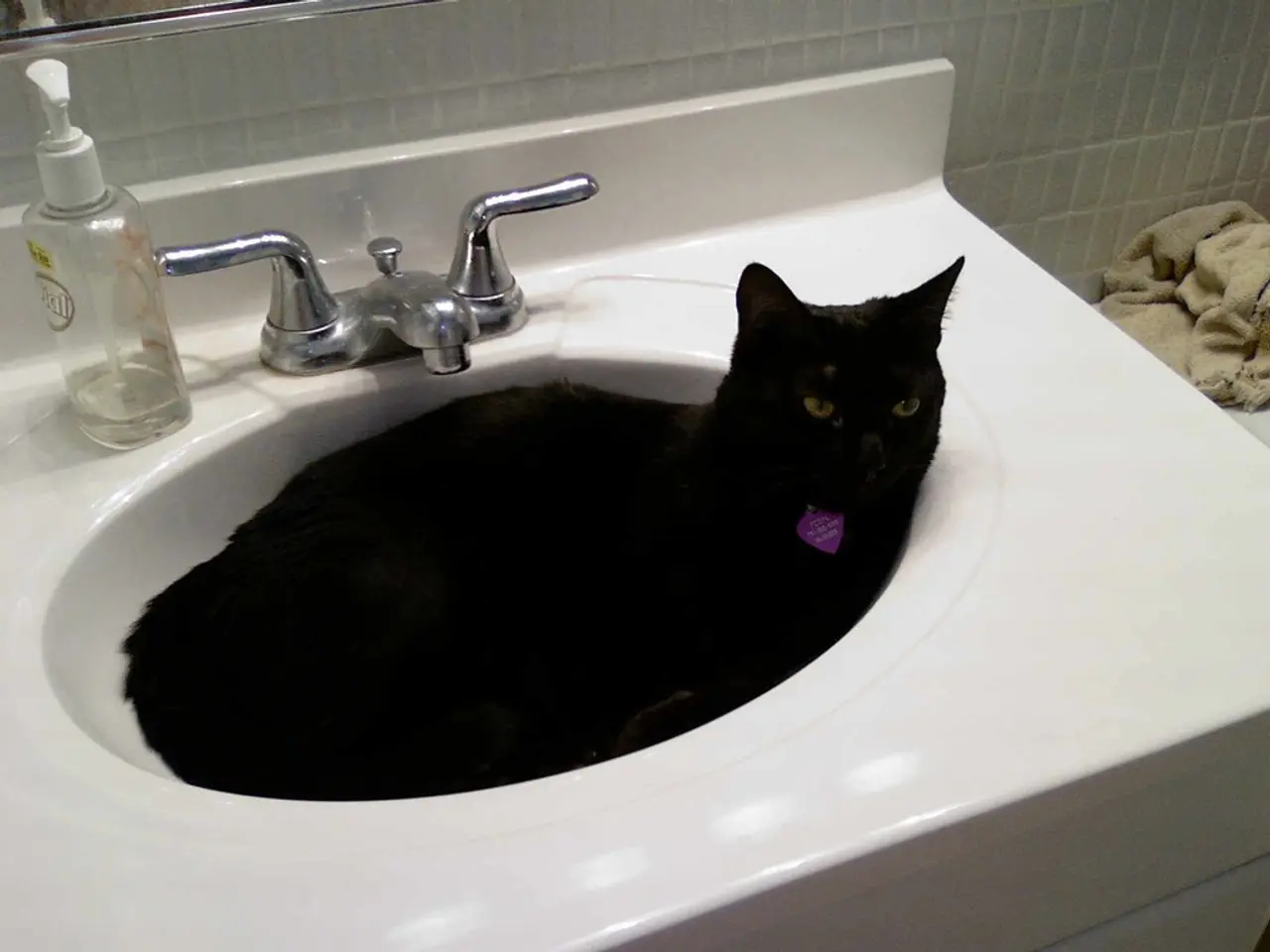Allergy to Animals: Causes, Signs, Remedies, and Further Information
Animal allergies, a common condition in the United States, affect both cats and dogs, requiring careful management. This article offers an overview of the common causes, symptoms, treatments, and management strategies for these allergies.
Common Causes of Animal Allergies
Cats and dogs can develop allergies due to various factors. For cats, food allergies, contact allergies, atopic dermatitis, and allergies to flea saliva are common. Food allergies occur when the immune system mistakenly identifies food proteins as harmful, commonly beef, dairy, or fish. Flea allergies are similar to those in dogs, while contact allergies result from reactions to substances like certain chemicals or materials. Atopic dermatitis is sensitivity to environmental allergens like pollen or dust mites.
Dogs, on the other hand, are more likely to develop seasonal allergies, reactivity to airborne allergens such as pollen and dust mites. They can also be allergic to flea saliva and, though rare, some dogs react to ingredients like chicken or corn in their food.
Symptoms of Animal Allergies
Symptoms of animal allergies can vary but often include gastrointestinal issues, skin problems, and secondary infections or respiratory issues. For cats, these may include vomiting, diarrhea, skin problems like itchiness, sores, and hair loss, and secondary infections and respiratory issues. Dogs may exhibit itchy skin, hives, flea allergy dermatitis leading to scratching and chewing, and, in some cases, abdominal pain due to food allergies.
Treatments and Management Strategies
Effective management of animal allergies involves a combination of eliminating triggers, medications, dietary changes, and regular veterinary consultations. For cats, this may include removing the allergen from the environment, using antihistamines and steroids for immediate relief, implementing hypoallergenic diets for food allergies, and consulting a vet for diagnosis and treatment plans.
Dogs may be treated with antihistamines, steroids, and targeted therapies like Apoquel, allergen-specific immunotherapy, novel protein diets or hydrolyzed diets for food allergies, and environmental management strategies like reducing exposure to allergens and using preventative measures like flea medication.
Overall Management Strategies
Beyond direct treatment, regular veterinary check-ups, home modifications, consistent preventative measures, compliance, and patience are crucial for managing animal allergies. Regular veterinary check-ups help monitor and adjust treatment plans, while home modifications create a cleaner environment to reduce allergen exposure. Consistent preventative measures include using flea and tick preventatives year-round, and managing allergies often requires long-term commitment and patience from pet owners.
Other strategies include decongestants, regularly steam cleaning carpets, and creating a pet-free zone to lessen allergens in specific areas. High-efficiency particulate air purifiers may also help decrease the amount of airborne allergens.
In conclusion, animal allergies can significantly impact the quality of life for both pet owners and pets. However, with proper understanding, management, and care, it is possible to live harmoniously with our furry friends.
References:
- American Veterinary Medical Association
- Merck Manual
- American Kennel Club
- Mayo Clinic
- The primary causes of cat allergies are food allergies, contact allergies, atopic dermatitis, and allergies to flea saliva, while dogs typically develop seasonal allergies and food allergies, including that to chicken or corn.
- Symptoms of animal allergies in cats may include vomiting, diarrhea, skin problems, and secondary infections or respiratory issues, while dogs may show itchy skin, hives, and flea allergy dermatitis.
- Successful management of animal allergies involves a combined approach, including eliminating triggers, medications like antihistamines and steroids, dietary changes, and regular veterinary consultations for both cats and dogs.
- Besides direct treatment, overall management strategies for animal allergies include regular veterinary check-ups, home modifications, consistent preventative measures, and long-term commitment, as well as decongestants, steam cleaning carpets, creating a pet-free zone, and using high-efficiency particulate air purifiers.
- Mental health and skin care are equally important for pet owners dealing with animal allergies, given the strain often placed on relationships and the need for comprehensive care to manage allergic reactions effectively.




